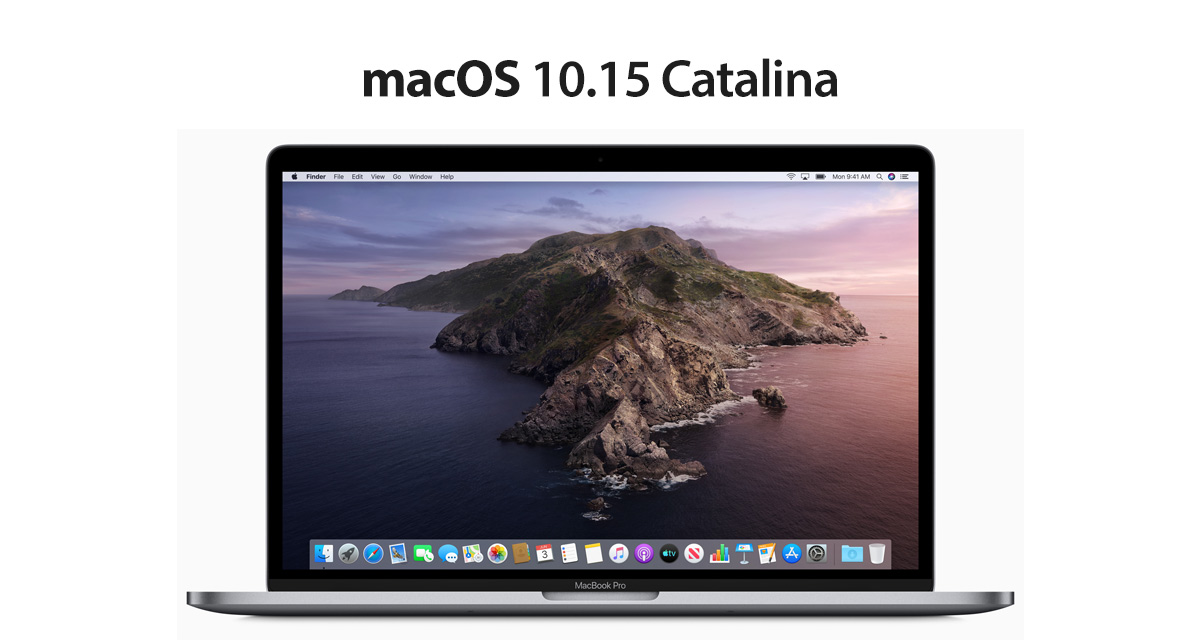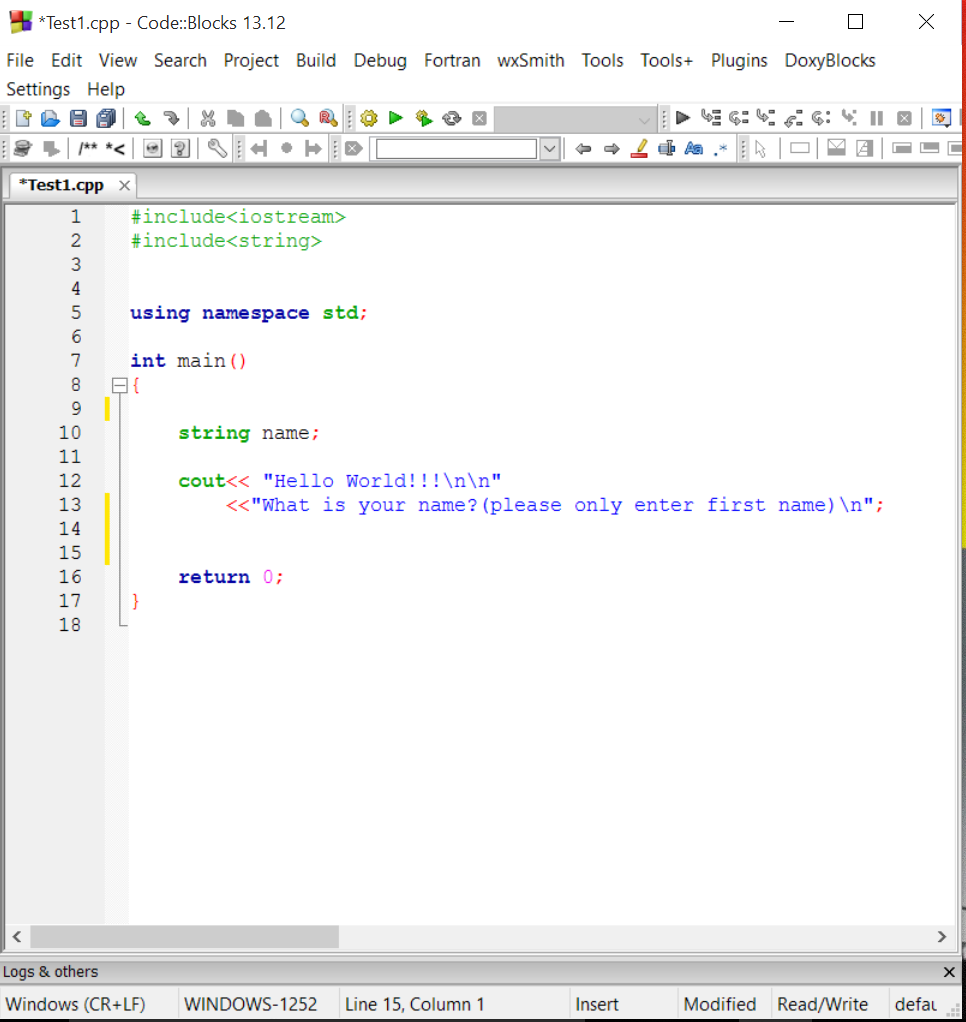Code Blocks is an excellent programming option for C. It consists of an open source, multiplatform integrated development environment that supports using multiple compilers, among which are: GCC (MingW / GNU GCC), MSVC, Digital Mars, Borland C 5.5 and Open Watcom. The default compiler that this Code Blocks package comes with is MinGW. Code::Blocks 20.03 for Mac is currently not available due to issues caused by Apple hardening their install packages and lack of Mac developers. We could use an extra Mac developer to work on these issues. The provided download contains an Application Bundle (for the i386 architecture) built for Mac OS X 10.6 (and later), bundling most Code. What is macOS 10.15 Catalina? Released on October 7th, 2019, macOS 10.15 Catalina is the latest version of the Mac operating system. Just like each macOS update in the past, Apple has created Catalina with more features and optimizations to improve your Mac experience. Download the latest Mac binary ZIP package of Code::Blocks, from BerliOS. For Mac OS X 10.4 up to 10.6 (PowerPC or Intel), download the 'Universal' Now unpack the zip file package, and put CodeBlocks.app where you like it. The suggested location is /Developer/Applications or /Applications.
- Macos 10.15.6 Download
- Code Blocks For Macos 10 15 Download
- Code Blocks For Macos 10 15 Patch Notes
- Code Blocks For Macos 10 15 Hp
- Codeblock For Mac

Posted on May 21, 2017 by Paul
Updated 29 May 2020
In this tutorial, I will show you how to compile from source and install the current stable version of GCC on your macOS computer. The instructions from this tutorial were tested with latest version of Command Line Tools and Mojave (macOS 10.14). If you are using Catalina (macOS 10.15) check this tutorial.
Clang, the default compiler for macOS, supports only C, C++, Objective-C and Objective-C++. If you are interested in a modern Fortran compiler, e.g. you will need gfortran that comes with GCC. Another reason to have the latest stable version of GCC on your macOS is that it provides you with an alternative C and C++ compiler. Testing your code with two different compilers is always a good idea.
Building GCC 10 from sources could take some time, in my case it took a few hours on a MacBook Air with a 16GB of RAM.
In order to compile GCC from sources you will need a working C++ compiler. In the remaining of this article I will assume that you have installed the Command Line Tools for Xcode. At the time of this writing Apple’s Command Line Tools maps the gcc and g++ to clang and clang++. If you don’t have the Command Line Tools installed, open a Terminal and write:
which will guide through the installation process.
Let’s start by creating a working folder:
Next, we can download and extract the latest stable version of GCC:
GCC 10 depends on a couple of other libraries (GSL, GMP, MPFR and ISL) that can be downloaded with:
the above four prerequisites will be built during the GCC build.
We are ready to compile GCC now. Be prepared that this could take some time … Since I’m interested only in the C, C++ and Fortran compilers, this is the configure command I’ve used on my machine:
The above command instructs the configure app to add a prefix to all the resulting executable programs, so for example if you want to invoke GCC 10.1.0 you will write gcc-10.1, the gcc command will invoke Apple’s version of clang.
If you are interested in building more compilers available in the GCC collection modify the –enable-languages configure option.
And now, the final touches:
Grab a coffee, maybe a book, and wait … this should take approximately, depending on your computer configuration, an hour … or more … and about 4 GB of your disk space for the build folder.
Macos 10.15.6 Download
Install the compiled gcc in /usr/local/gcc-10.1.0:
Now, you can keep the new compiler completely isolated from your Apple’s gcc compiler and, when you need to use it, just modify your path by writing in Terminal:
If you want to avoid writing the above command each time you open a Terminal, save the above command in the file .bash_profile from your Home folder, e.g:
You should be able to invoke any of the newly compiled compilers C, C++, Fortran …, invoking g++ is as simple as writing in your Terminal:
Remember to erase the working folder from your HOME if you want to recover some space:
Next, I’ll show you how to check if the compiler was properly installed by compiling and running a few examples. GCC 10 uses by default the C++14 standard and C11 for the C coders, you should be able to compile any valid C++14 code directly. In your favorite text editor, copy and save this test program (I’ll assume you will save the file in your Home directory):
Compiling and running the above lambda example:

We could also compile a C++ code that uses threads:
Code Blocks For Macos 10 15 Download
Next, we present a simple C++ code that uses regular expressions to check if the input read from stdin is a floating point number:

If you are a Fortran programmer, you can use some of the Fortran 2008 features like doconcurrent with gfortran-10.1:
Code Blocks For Macos 10 15 Patch Notes
The above code can be compiled with (assuming you’ve saved it as tst_concurrent_do.f90):
If you are interested in learning more about the new C++11/C++14 syntax I would recommend reading The C++ Programming Language by Bjarne Stroustrup.
Code Blocks For Macos 10 15 Hp
or, Professional C++ by M. Gregoire, N. A. Solter, S. J. Kleper 2nd edition:
If you need to brush your Fortran knowledge a good book is Modern Fortran Explained by M. Metcalf, J. Reid and M. Cohen:

Codeblock For Mac

Code Block’s functions can be expanded by using plug-ins. It has a fast, personalized construction system that doesn’t require makefiles and that allows you to carry out parallel constructions on systems with a multicore CPU.
The Code Blocks’ debugger supports the applying of breakpoints on the source code or on the data that the program operates, as well as the establishing of conditions and counters for said breakpoints. It is also possible to create defined inspections by the user. Another noteworthy characteristic are the customized memory dumps.
Finally, Code Blocks colors the open source syntax, includes “code folding” for C++ and XML languages, and has an interface with tabs, a class browser and a function to complete the source code.